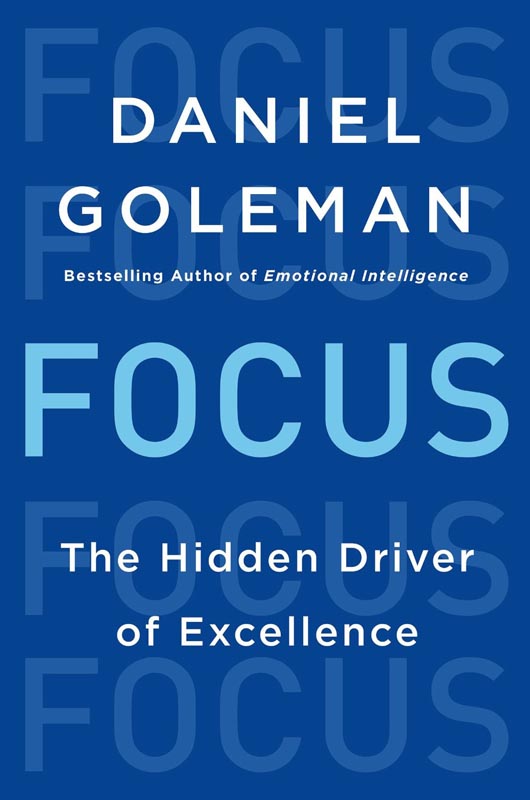A few years ago, aboard the ferry to Woods Hole, Daniel Goleman ran into a group of seven sorority sisters traveling together. Each woman had her iPhone in hand and was busy texting, scrolling through images or commenting on posts. Mr. Goleman couldn’t stop watching this group of friends, seemingly invisible to one another and also unaware of anything going on around them.
“I thought, I need to start looking at attention,” Mr. Goleman said.
Mr. Goleman is a psychologist and writer. For many years he worked as a journalist for the New York Times, writing about behavioral science and brain research. In 1995 he wrote Emotional Intelligence, a worldwide bestseller that had a profound impact on teachers, psychologists and business leaders, and changed the way ability and intelligence are measured.
As a result of his chance nonencounter on the ferry boat, Mr. Goleman began studying the role paying attention plays in our lives. This became the subject of his latest book, Focus: The Hidden Driver of Excellence. Mr. Goleman describes the book as an argument for why we should care about focus. He has also created a companion piece online that teaches one how to achieve a higher level of focus. This instructional audio is called Cultivating Focus: Techniques for Excellence. The audio was created for adults but parallel products are available for teens and children.
In his book, Mr. Goleman identifies three types of focus, which he described as: “Self awareness, awareness of others, or empathy, and a larger awareness of the systems we operate in.”
Mr. Goleman calls these three types of focus “inner,” “other,” and “outer,” and says that any leader needs to cultivate all three. “I define a leader as anyone with a sphere of influence,” he added.
In today’s world, however, focusing on just one thing has become as archaic as the rotary phone.
“We’ve allowed digital intrusion to invade our attention more and more,” Mr. Goleman said. He points to the example of a couple who go out to eat at a romantic restaurant. “They gaze into their phone instead of one another’s eyes,” he said.
But Mr. Goleman doesn’t simply condemn the technology that clamors for our attention. He even shares examples of technology that can improve focus, pointing to video games designed to provide neurofeedback for children with attention deficit disorder.
“We have to be smart about technology,” he said.
The guided exercises in the audio companion piece are designed to help people develop all three areas of focus. For example, a mindfulness exercise helps listeners tune into their bodies, noticing physical sensations and emotions. An exercise called Just Like Me helps children reflect on how people are similar and different. And following a T-shirt from production to purchase addresses the “outer” focus related to systems.
Mr. Goleman has embraced the craft of focusing his attention beginning over 40 years ago when he started practicing meditation as an undergraduate at Harvard. He did his dissertation on the impact of meditation on recovery from stress. Throughout his career he has continued to do research on mindfulness. He noted how science now shows how exercising this mental muscle — focusing on a particular subject and bringing the attention back when it wanders — helps people concentrate, avoid distraction and better manage their emotions. Recently, Mr. Goleman gave a meditation seminar for a New York city construction firm.
He said that meditating also helps his writing process. “I try to write in a place where I can ignore phones and distractions, that’s part of why I like the Vineyard so much.”
Anecdotes, science and real-world applications commingle in Focus, a book that crosses over many genres.
“I hope that organizations will pay more attention to the quality of attention, it is such a valuable resource,” Mr. Goleman said.
And where will Mr. Goleman turn his attention next? He is quiet for a moment, thoughtful.
“I’m waiting to see,” he said.







Comments
Comment policy »